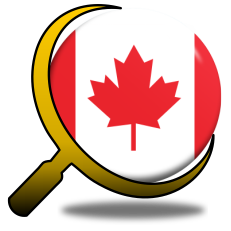Are you ready to take control of your finances and secure a stable future in Canada? Building a solid financial plan is the key to achieving your goals and living the life you desire. Whether you’re saving for retirement, planning for major purchases, or simply aiming to grow your wealth, having a well-thought-out financial plan can set you on the right path. In this blog post, we will explore essential tips and tools to help you create a robust financial plan tailored specifically for the Canadian context. Let’s dive in!

Understanding the Importance of a Financial Plan
Having a solid financial plan is like having a roadmap for your money. It provides direction, clarity, and peace of mind knowing that you are on track to achieve your financial goals. Without a plan in place, it’s easy to lose sight of where your money is going and miss out on opportunities to grow your wealth.
A financial plan helps you prioritize your spending, save for the future, and make informed decisions about investments. It gives you a clear picture of your current financial situation and outlines steps to improve it over time. By understanding the importance of having a financial plan, you can take control of your finances and work towards building a secure financial future for yourself and your family.
In Canada, where economic conditions and tax laws may vary compared to other countries, having a tailored financial plan that considers these factors is crucial. Whether you’re just starting out or nearing retirement age, creating a personalized financial roadmap can help you navigate through life’s ups and downs with confidence.
Assessing Your Current Financial Situation
Assessing your current financial situation is the crucial first step in building a solid financial plan. It’s like taking inventory of what you have before creating a roadmap for where you want to go.
Start by gathering all your financial documents – bank statements, bills, investment accounts, and any other relevant information. This will give you a clear picture of your income, expenses, assets, and debts.
Next, calculate your net worth by subtracting your liabilities from your assets. Understanding this number can help you see where you stand financially and track your progress over time.
Evaluate your spending habits to identify areas where you can cut costs or save more money. Are there any unnecessary expenses that can be eliminated? Can you find ways to increase your income?
Consider factors like emergency savings, insurance coverage, and debt repayment when assessing your financial health. Having a complete understanding of where you are financially will set the foundation for creating realistic goals and making informed decisions moving forward.
Setting Realistic Goals for Your Finances
Setting realistic goals for your finances is crucial in building a solid financial plan that works for you. Start by identifying what you want to achieve financially, whether it’s saving for a down payment on a house, paying off debt, or investing for retirement.
Consider both short-term and long-term goals to ensure you have a balanced approach to managing your money. Be specific about the amount of money you need and the timeline in which you want to achieve each goal.
It’s important to make sure your goals are achievable based on your current financial situation. Setting unrealistic expectations can lead to frustration and derail your progress.
Break down larger goals into smaller milestones that are easier to track and accomplish along the way. Celebrate these small wins as they will keep you motivated on your financial journey.
Stay flexible with your goals as life circumstances may change. Adjusting them accordingly will help you stay on track and adapt to any unexpected challenges that may arise.
Creating a Budget and Sticking to it
Creating a budget is the cornerstone of any solid financial plan. It involves detailing your income sources and expenses to understand where your money goes each month. Start by listing all your fixed expenses like rent, utilities, and loan payments. Then factor in variable costs such as groceries, entertainment, and shopping.
Once you have a clear picture of your finances, set realistic limits for each spending category. Be honest about what you can afford and prioritize saving over unnecessary purchases. Use tools like budgeting apps or spreadsheets to track your expenses effectively.
Sticking to a budget requires discipline and commitment. Avoid impulse buying and stay accountable by reviewing your spending regularly. Adjust your budget as needed to accommodate unexpected expenses or changes in income.
Remember that creating a budget isn’t restrictive; it’s empowering! By managing your money wisely, you’re taking control of your financial future.
Saving for Retirement and Other Long-Term Goals
When it comes to saving for retirement and other long-term goals in Canada, it’s essential to start planning early. Setting aside a portion of your income regularly can help you build a substantial nest egg for the future.
Consider opening a Tax-Free Savings Account (TFSA) or a Registered Retirement Savings Plan (RRSP) to maximize your savings potential while taking advantage of tax benefits. These accounts offer different advantages depending on your financial situation and goals.
Diversifying your investments is crucial when saving for the long term. Explore various investment options such as stocks, bonds, mutual funds, and real estate to spread out risk and potentially increase returns over time.
Consulting with a financial advisor can provide valuable insights into creating an effective retirement savings strategy tailored to your specific needs and circumstances. Regularly reviewing and adjusting your plan as life changes occur will ensure that you stay on track towards achieving your long-term financial goals in Canada.

Investing Wisely in Canada
Investing wisely in Canada is essential for building wealth and securing your financial future. With a variety of investment options available, it’s important to do thorough research before making any decisions. Consider factors such as your risk tolerance, time horizon, and financial goals when choosing where to invest.
One popular option for Canadians is investing in Registered Retirement Savings Plans (RRSPs) or Tax-Free Savings Accounts (TFSAs). These accounts offer tax advantages and can help you save for retirement or other long-term goals. Another common choice is investing in the stock market through individual stocks or exchange-traded funds (ETFs).
Real estate is also a popular investment avenue in Canada, with many people seeing property ownership as a way to build equity over time. Additionally, bonds and mutual funds are more conservative options that can provide steady returns.
No matter what you choose to invest in, be sure to diversify your portfolio to mitigate risk. Stay informed about economic trends and regularly review your investments to ensure they align with your financial objectives.
Utilizing Financial Planning Tools and Resources
When it comes to building a solid financial plan in Canada, utilizing the right tools and resources can make a significant difference. There are various online platforms and apps that can help you track your expenses, monitor your investments, and set financial goals.
One useful tool is a budgeting app that allows you to categorize your spending and see where your money is going each month. This can help identify areas where you may be overspending or where you could cut back.
Another valuable resource is online calculators that can assist in planning for major life events like buying a home, saving for education, or retiring comfortably. These tools provide estimates based on factors like income, expenses, and savings rate.
Additionally, consulting with a financial advisor who understands the Canadian market can offer personalized guidance tailored to your specific needs and goals. They can provide expert advice on investment strategies, tax planning, insurance options, and more.
By leveraging these tools and resources effectively as part of your financial plan, you can take proactive steps towards achieving long-term financial stability in Canada.
Constantly Reviewing and Adjusting Your Plan
As you embark on your journey to build a solid financial plan in Canada, remember that it is not a one-time task. Constantly reviewing and adjusting your plan is crucial to ensure that it remains relevant and effective in helping you achieve your goals. Life changes, financial markets fluctuate, and priorities shift – all of which necessitate regular reassessment of your financial strategy.
By staying proactive and vigilant in monitoring your progress, making necessary tweaks along the way, and leveraging various tools available to Canadians for financial planning, you can stay on track towards securing a stable financial future. Remember, a well-thought-out financial plan tailored to your unique circumstances can provide peace of mind and pave the way for achieving long-term prosperity. Start today and take control of your finances with confidence!












